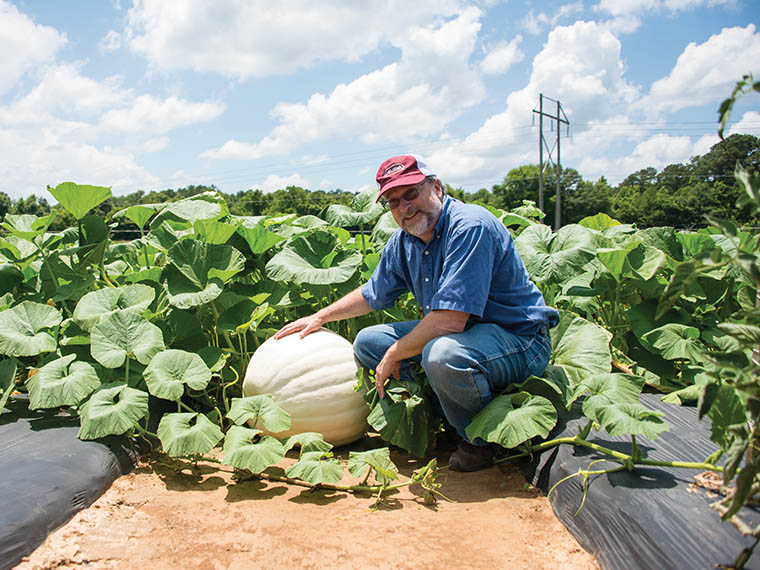The information presented on this page may be dated. It may refer to situations which have changed or people who are no longer affiliated with the university. It is archived as part of Mississippi State University's history.
Current Research
Currently, I am one of about 25 national vegetable judges for the All-America Selections variety trials, an independent, non-profit organization that tests new varieties, and then introduces only the best garden performers as AAS Winners. I plant, observe, and evaluate how new vegetable varieties perform in comparison to varieties already on the market that are most similar. My results are sent to the AAS as well as a third party accounting firm and contribute to the selection of each year's AAS winners in the edible category. I also serve as mentor to provisional judges in other states who are in training to become judges. Over the years I have conducted many experiments to help our greenhouse vegetable growers, including variety trials, biological control, evaluation of heating systems, various combinations of growing media, pollination methods, and fertilizer studies. The results of these studies are incorporated into the Greenhouse Tomato Handbook.
Name A Specific Time When Your Research Was Applied
About a year after I joined MSU, I had the opportunity to serve in an extension capacity for greenhouse vegetables. I jumped at the opportunity because my master's degree focused on the subject. At the time, there wasn't an extension bulletin that covered hydroponically-grown greenhouse tomatoes from any state in the U.S. I created the bulletin and years later had it translated to Spanish. The Spanish version has been the most downloaded publication on the MSU Extension website (msucares.com) for several years with nearly 170,000 downloads per year. The reason for that, I believe, is that there are 32 countries in the world that speak Spanish and many of those countries don't have access to an extension service. Greenhouse tomato production has been steadily increasing globally and our work in Mississippi has reached growers all over the world. The Greenhouse Tomato Short Course we hold every year was also an extension event born out of research. We've held the event for more than 25 years and each year we get about 100 attendees across approximately 25 states with international attendees as well.
How Did The Research Benefit Producers?
Research-based extension bulletins and the Greenhouse Tomato Short Course really helped growers at all stages-from beginning growers trying to figure out how to build their greenhouse and start a business to seasoned commercial producers-we strive to deliver vital information that is relevant to growers no matter their level of expertise.
How Does Your Research Help Inform Your Extension Role And Vice Versa?
I am a big fan of split appointments. It's a natural position. When you get one call or several calls on a particular topic, oftentimes, you must conduct research in order to answer the question.
Greenhouse tomato production has been steadily increasing globally and our work in Mississippi has reached growers all over the world.

